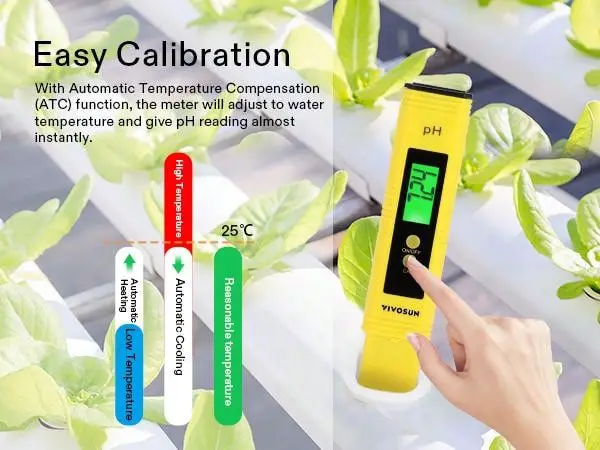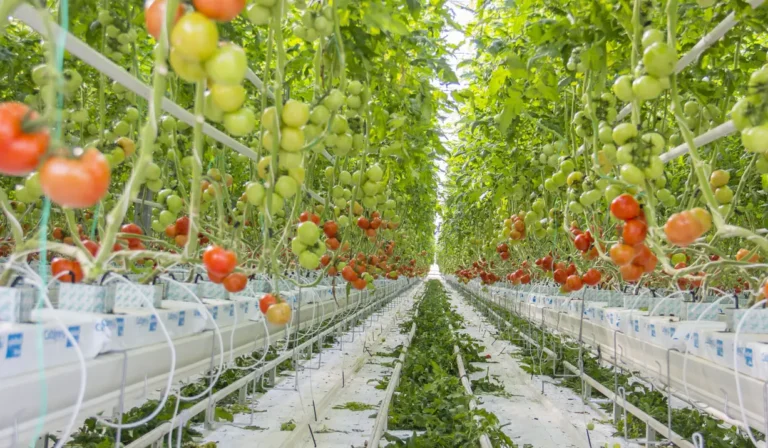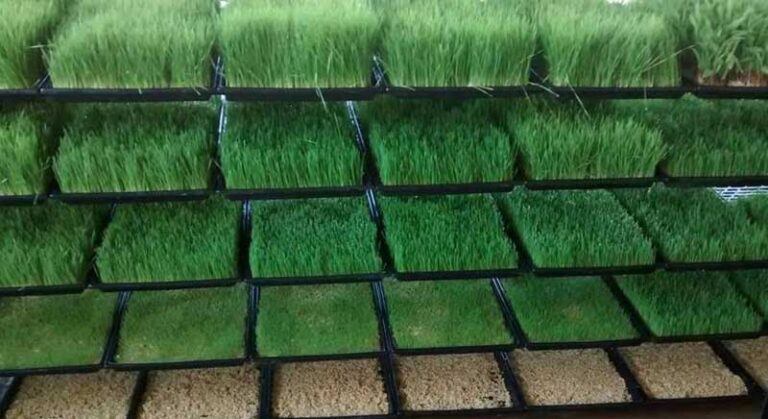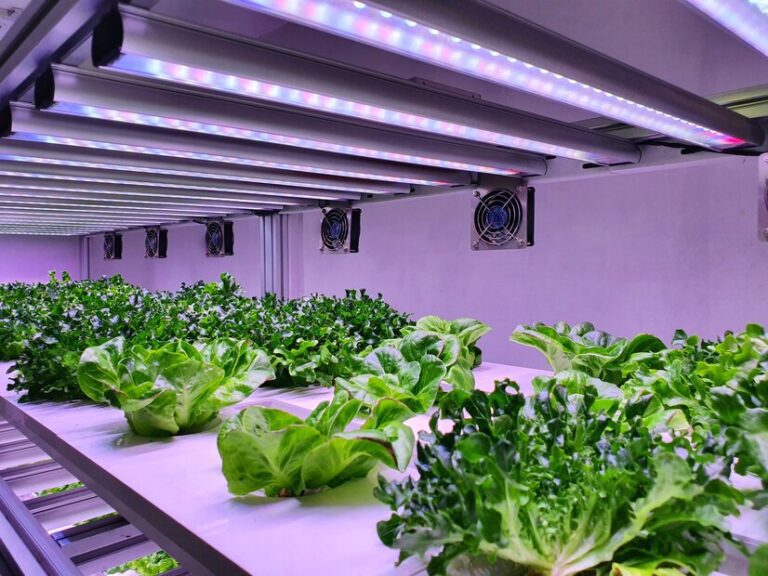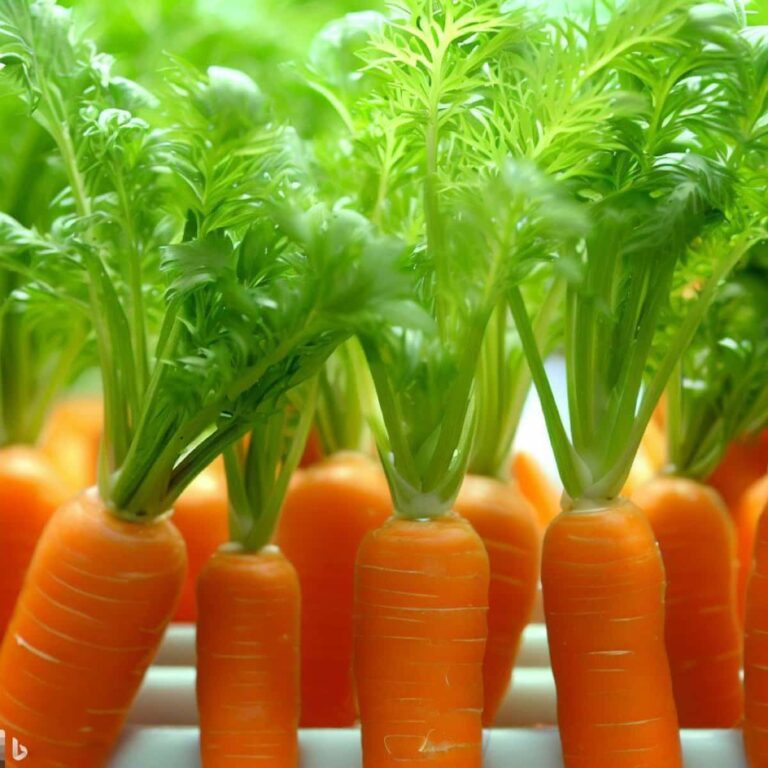How to Choose the Right Digital pH Meter for Your Hydroponic Garden
Table of Contents
How pH affects nutrient absorption and plant growth.
Soil pH plays a crucial role in nutrient absorption and plant growth. When the pH level of the soil is too high or too low, it can significantly affect the availability and uptake of essential nutrients by plants. This, in turn, can lead to nutrient deficiencies or toxicities, stunting their growth and compromising their overall health.
In acidic soils with a low pH, certain nutrients like phosphorus, calcium, and magnesium become less available to plants. On the other hand, alkaline soils with a high pH can cause nutrient imbalances, particularly affecting the absorption of iron, manganese, and zinc. For optimal growth, most plants prefer a slightly acidic to neutral soil pH range of 6 to 7.
Maintaining the appropriate pH level in your hydroponic system is equally important. Hydroponics, a soil-less cultivation method, relies on nutrient solutions that need to be adjusted to the ideal pH range for your specific plants. By carefully monitoring and adjusting the pH, you can ensure that the essential nutrients needed for your plants’ growth are readily available for absorption.
• In acidic soils, nutrients like phosphorus, calcium, and magnesium become less available to plants.
• Alkaline soils can cause nutrient imbalances and affect the absorption of iron, manganese, and zinc.
• Most plants prefer a slightly acidic to neutral soil pH range of 6 to 7 for optimal growth.
• Maintaining the appropriate pH level is important in hydroponic systems as well.
• Hydroponics relies on nutrient solutions that need to be adjusted to the ideal pH range for specific plants.
• Careful monitoring and adjustment of pH ensure essential nutrients are readily available for absorption.

The significance of maintaining a balanced pH level in your hydroponic system.
Maintaining a balanced pH level in your hydroponic system is of utmost importance for the overall health and productivity of your plants. pH refers to the measurement of acidity or alkalinity in a solution. In hydroponics, the correct pH range is crucial because it directly affects nutrient availability and absorption by the plants’ roots.
If the pH level strays too far from the optimal range, it can lead to nutrient deficiencies or toxicities, hindering the plants’ ability to absorb essential elements for growth. For example, if the pH is too high (alkaline), certain nutrients like iron, manganese, and zinc may become less available to plants, resulting in stunted growth and yellowing leaves. On the other hand, if the pH is too low (acidic), nutrients such as phosphorus, calcium, and magnesium may become excessively available and cause nutrient imbalances, leading to nutrient burn and adverse effects on plant health.
Maintaining a balanced pH level in your hydroponic system ensures that the nutrients you provide are accessible and optimally absorbed by your plants, promoting healthy growth and preventing nutrient deficiencies or toxicities. It is crucial to regularly monitor and adjust the pH level in your hydroponic system to provide an optimal environment for your plants to thrive and produce abundant yields.
• A balanced pH level allows for optimal nutrient availability and absorption by the plants’ roots.
• If the pH level is too high (alkaline), certain nutrients like iron, manganese, and zinc may become less available to plants, resulting in stunted growth and yellowing leaves.
• If the pH level is too low (acidic), nutrients such as phosphorus, calcium, and magnesium may become excessively available and cause nutrient imbalances, leading to nutrient burn and adverse effects on plant health.
• Regularly monitoring and adjusting the pH level in your hydroponic system ensures that the nutrients provided are accessible and optimally absorbed by your plants.
• Maintaining a balanced pH level promotes healthy growth and prevents nutrient deficiencies or toxicities.
Assessing Your Hydroponic Garden’s pH Monitoring Needs:
Assessing the pH monitoring needs of your hydroponic garden is a crucial step in ensuring optimal plant growth and nutrient absorption. By maintaining a balanced pH level, you can create the ideal environment for your plants to thrive. The pH level of your hydroponic system directly affects the availability and uptake of essential nutrients by the roots.
To accurately assess your pH monitoring needs, start by determining the size and scale of your hydroponic setup. A larger garden may require more frequent pH measurements and monitoring compared to a smaller one. Additionally, it is essential to identify the specific pH range required for the plants you are growing. Different plants have varying pH preferences, and providing the appropriate pH levels will support their overall health and development.
Consider the frequency of pH measurements needed for your garden. Some hydroponic systems may require daily pH monitoring, while others may only need to be checked once or twice a week. Understanding the specific needs of your plants and the pH stability of your system will guide you in deciding how often to measure pH levels.
Accurate and precise pH measurements are crucial for successful hydroponics. To evaluate the accuracy and precision requirements of a digital pH meter, researching different models’ capabilities is essential. Look for meters that have been reviewed positively for their accuracy and precision in various hydroponic setups. Ensuring your pH meter provides reliable measurements will help you make informed adjustments to maintain the desired pH level in your hydroponic garden.
• Assess the size and scale of your hydroponic setup to determine pH monitoring needs
• Identify the specific pH range required for the plants you are growing
• Consider the frequency of pH measurements needed based on plant needs and system stability
• Research different models of digital pH meters to evaluate accuracy and precision capabilities
• Look for positive reviews from users in various hydroponic setups
• Ensure your chosen pH meter provides reliable measurements for informed adjustments
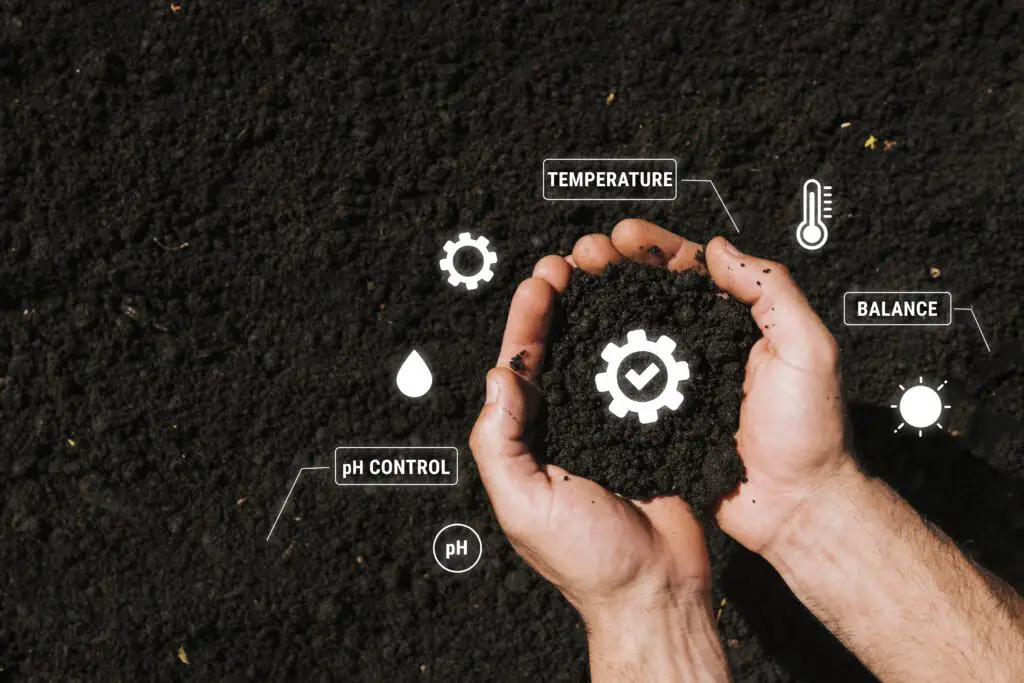
Determining the size and scale of your hydroponic setup.
Determining the size and scale of your hydroponic setup is a crucial step in creating a successful and efficient garden. Several factors need to be considered to ensure optimal plant growth and nutrient absorption. Firstly, you need to assess the available space in your garden or indoor area where you plan to set up your hydroponic system. This will help you determine the size and layout of your setup, whether it be a small-scale operation or a larger commercial venture.
The type and number of plants you wish to grow will also influence the size and scale of your hydroponic setup. Different plants have varying space requirements and may need specific conditions to thrive. For example, leafy greens like lettuce or herbs can be grown in smaller setups, such as vertical towers or nutrient film technique (NFT) systems. On the other hand, larger fruiting plants like tomatoes or cucumbers may require more space and support structures, such as trellising or stake systems.
Carefully considering these factors will help you determine the appropriate size and scale of your hydroponic setup. By tailoring your system to meet the needs of your plants and utilizing the available space effectively, you can maximize your yields and create a sustainable and productive garden.
• Assess the available space in your garden or indoor area
• Determine the size and layout of your setup based on available space
• Consider the type and number of plants you wish to grow
• Different plants have varying space requirements and specific conditions to thrive
• Leafy greens like lettuce or herbs can be grown in smaller setups, such as vertical towers or NFT systems
• Larger fruiting plants like tomatoes or cucumbers may require more space and support structures
• Tailor your system to meet the needs of your plants
• Utilize the available space effectively for maximum yields
• Create a sustainable and productive garden by carefully considering these factors
Identifying the specific pH range required for your plants.
To determine the specific pH range required for your plants in a hydroponic system, it is essential to understand that different plants have varying pH preferences. The pH scale ranges from 0 to 14, with 7 being considered neutral. Anything below 7 is considered acidic, while anything above 7 is deemed alkaline.
For most plants, an ideal pH range falls between 5.5 and 6.5, slightly on the acidic side. However, it is crucial to note that certain plants may require slightly different pH levels to thrive optimally. For example, leafy greens, such as lettuce and spinach, generally prefer a pH range of 5.5 to 6.0. On the other hand, flowering plants, like tomatoes and peppers, tend to perform best in a pH range of 5.8 to 6.5.
Finding the specific pH range required for your plants can be done through research, consulting gardening guides or resources, and even reaching out to local hydroponic experts. It is essential to tailor the pH levels in your hydroponic system to suit the specific needs of each plant type, as this will promote proper nutrient absorption and optimal growth.
• Different plants have varying pH preferences
• The pH scale ranges from 0 to 14, with 7 being neutral
• Anything below 7 is acidic and anything above 7 is alkaline
• Most plants thrive in an ideal pH range of 5.5 to 6.5, slightly on the acidic side
• Leafy greens like lettuce and spinach prefer a pH range of 5.5 to 6.0
• Flowering plants like tomatoes and peppers perform best in a pH range of 5.8 to 6.5
• Research, consulting gardening guides or resources, and reaching out to local hydroponic experts can help determine the specific pH range required for your plants
• Tailoring the pH levels in your hydroponic system promotes proper nutrient absorption and optimal growth
Considering the frequency of pH measurements needed for your garden.
To ensure optimal growth and nutrient absorption in your hydroponic garden, it is crucial to consider the frequency of pH measurements. pH levels can fluctuate over time, affecting the availability of essential nutrients for your plants. Regular monitoring of pH allows you to detect and address any imbalances promptly.
The frequency of pH measurements will depend on several factors, including the type of plants you are growing, the size of your hydroponic system, and the stability of your water source. Generally, it is recommended to measure pH levels at least once a day in large-scale hydroponic setups, while smaller systems may require measurements every few days.
By monitoring pH levels frequently, you can quickly identify any deviations from the ideal range and take appropriate corrective actions. This may involve adjusting nutrient solutions, adding pH stabilizers, or flushing the system if necessary. Regular pH measurements help maintain a stable growing environment, maximizing nutrient uptake and promoting healthy plant growth.
• Regular monitoring of pH levels allows for prompt detection and correction of imbalances.
• The frequency of pH measurements depends on factors such as plant type, system size, and water source stability.
• Large-scale hydroponic setups should measure pH levels at least once a day.
• Smaller systems may require measurements every few days.
• Frequent monitoring helps identify deviations from the ideal range quickly.
• Corrective actions can include adjusting nutrient solutions, adding pH stabilizers, or flushing the system if necessary.
• Regular pH measurements promote stable growing conditions and maximize nutrient uptake.
| Frequency | Explanation |
|---|---|
| Weekly | Especially during active growing seasons. |
| Bi-weekly | During critical growth periods or adjustments. |
| Monthly | During less active periods or maintenance phases. |
| Quarterly | As a general check-up during stable conditions. |
| As Needed | When troubleshooting or observing specific issues. |
Accuracy and Precision:
Accurate and precise pH measurements play a crucial role in the success of hydroponic systems. Maintaining a balanced pH level is essential for optimal nutrient absorption and plant growth. Inaccurate pH measurements can lead to imbalances in the nutrient solution, resulting in nutrient deficiencies or toxicities that can hinder plant health and yield.
To ensure accurate and precise pH readings, it is important to select a digital pH meter that meets the requirements of your hydroponic setup. Different pH meters have varying levels of accuracy and precision, which can affect the reliability of the measurements. When researching pH meters, it is advisable to consider the accuracy and precision capabilities of each model, as well as any certifications or standards they adhere to.
Accuracy refers to how closely the pH meter’s readings align with the true pH value of the solution. A high level of accuracy ensures that the measurements reflect the actual pH level. Precision, on the other hand, refers to the consistency and reproducibility of the pH meter’s readings. A highly precise pH meter will provide consistent results when multiple measurements are taken from the same solution. Both accuracy and precision are important for obtaining reliable pH readings and making informed adjustments to the nutrient solution.
In the next sections, we will explore the calibration process and the significance of selecting a high-quality pH probe for accurate readings. By understanding these factors, you will be equipped with the knowledge to make informed decisions when choosing and using a digital pH meter for your hydroponic garden.
• Accurate and precise pH measurements are crucial for the success of hydroponic systems.
• Maintaining a balanced pH level is essential for optimal nutrient absorption and plant growth.
• Inaccurate pH measurements can lead to imbalances in the nutrient solution, resulting in nutrient deficiencies or toxicities that can hinder plant health and yield.
• Selecting a digital pH meter that meets the requirements of your hydroponic setup is important for accurate and precise pH readings.
• Different pH meters have varying levels of accuracy and precision, which can affect the reliability of the measurements.
• When researching pH meters, it is advisable to consider their accuracy and precision capabilities, as well as any certifications or standards they adhere to.
Accuracy:
– Refers to how closely the pH meter’s readings align with the true pH value of the solution.
– High accuracy ensures that measurements reflect the actual pH level.
Precision:
– Refers to consistency and reproducibility of the pH meter’s readings.
– A highly precise meter provides consistent results when multiple measurements are taken from the same solution.
Both accuracy and precision are important for obtaining reliable pH readings:
– They help make informed adjustments to the nutrient solution.
The next sections will explore:
1) The calibration process
2) The significance of selecting a high-quality pH probe for accurate readings
By understanding these factors, you will be equipped with knowledge to make informed decisions when choosing and using a digital ph meter for your hydroponic garden.
Evaluating the accuracy and precision requirements of a digital pH meter.
Accuracy and precision are crucial factors to consider when evaluating digital pH meters for your hydroponic garden. It is essential to ensure that the pH meter provides accurate measurements of the pH levels in your nutrient solution, as even slight discrepancies can significantly impact your plants’ growth and overall health.
When assessing the accuracy of a digital pH meter, consider its tolerance level and how closely it aligns with the actual pH value. Look for a pH meter with a high level of accuracy, preferably with a tolerance of ±0.01 or better. This ensures that the readings you obtain are reliable and trustworthy, allowing you to make informed decisions regarding nutrient supplementation and pH adjustments.
In addition to accuracy, precision is equally important in a digital pH meter. Precision refers to the instrument’s ability to yield consistent and reproducible results. A pH meter with excellent precision will give you consistent readings across multiple tests, minimizing any variations that may arise due to instrument malfunction or user error.
To evaluate the precision of a digital pH meter, you can consider factors such as the instrument’s stability, response time, and repeatability. Look for a pH meter that stabilizes quickly after immersion in the solution, as this indicates a more stable and reliable reading. Additionally, choose a meter that consistently produces repeatable results, ensuring reliable and consistent monitoring of your hydroponic system’s pH levels.
• Accuracy is crucial for obtaining reliable pH measurements in a hydroponic garden.
• Look for a pH meter with a tolerance level of ±0.01 or better to ensure accurate readings.
• Accurate measurements allow for informed decisions regarding nutrient supplementation and pH adjustments.
• Precision is equally important, as it ensures consistent and reproducible results.
• Factors such as stability, response time, and repeatability can be considered when evaluating precision.
• Choose a pH meter that stabilizes quickly after immersion in the solution for more reliable readings.
• Select a meter that consistently produces repeatable results to ensure consistent monitoring of pH levels.
Understanding the importance of reliable pH measurements for successful hydroponics.
Reliable pH measurements are essential for successful hydroponics. pH levels directly affect nutrient absorption and plant growth. Plants have specific pH ranges in which they can efficiently absorb nutrients. If the pH is too high or too low, nutrient availability becomes limited, and plants may experience stunted growth or nutrient deficiencies.
Maintaining a balanced pH level is crucial for optimizing plant health and maximizing yields in a hydroponic system. By regularly monitoring and adjusting the pH, growers can ensure that the nutrient solution provides an optimal environment for plant growth. Without accurate pH measurements, it becomes challenging to maintain a balanced pH level, leading to suboptimal nutrient uptake and reduced plant performance. Investing in reliable pH measurement tools is, therefore, paramount for ensuring the success of hydroponic gardening ventures.
• Accurate pH measurements are necessary for understanding the nutrient availability in hydroponic systems.
• pH affects the solubility and availability of essential nutrients to plants.
• Nutrient deficiencies or imbalances can occur if the pH is not properly monitored and adjusted.
• Reliable pH measurements allow growers to make informed decisions about nutrient supplementation and adjustments.
• Regular monitoring of pH levels helps prevent potential problems before they impact plant health and growth.
• Investing in reliable pH measurement tools ensures consistent and accurate readings, leading to better crop yields.
Researching different digital pH meters’ accuracy and precision capabilities.
When researching different digital pH meters for your hydroponic garden, it is crucial to consider their accuracy and precision capabilities. Accuracy refers to how close the measured pH value is to the actual pH value, while precision relates to the consistency and reproducibility of the pH readings.
To ensure the success of your hydroponic system, you need a pH meter that provides reliable and precise measurements. Inaccurate pH readings could lead to improper nutrient uptake by your plants, resulting in stunted growth or nutrient deficiencies. On the other hand, imprecise pH measurements may make it difficult to identify changes in pH levels and make timely adjustments. Consequently, investing in a pH meter with high accuracy and precision will enable you to closely monitor and maintain the optimal pH range for your plants’ growth and overall health.
• Accuracy and precision are crucial factors to consider when researching digital pH meters for your hydroponic garden.
• Accuracy refers to how close the measured pH value is to the actual pH value.
• Precision relates to the consistency and reproducibility of the pH readings.
• Inaccurate pH readings can lead to improper nutrient uptake by plants, resulting in stunted growth or nutrient deficiencies.
• Imprecise pH measurements may make it difficult to identify changes in pH levels and make timely adjustments.
• Investing in a pH meter with high accuracy and precision will enable you to closely monitor and maintain the optimal pH range for plant growth.
Calibration Process:
One crucial aspect of maintaining a successful hydroponic garden is the calibration process for the pH meter. Calibration is necessary to ensure accurate and reliable pH measurements, as even a slight deviation can significantly impact plant health and growth.
Different pH meters require different calibration methods, but the goal remains the same – to establish a reference point for accurate readings. Most digital pH meters offer a user-friendly calibration process that involves adjusting the meter to match known standards. This typically involves immersing the pH probe in a solution with a known pH and adjusting the meter accordingly. It’s important to follow the manufacturer’s instructions carefully to ensure accurate calibration.
• Calibration is necessary to ensure accurate and reliable pH measurements in hydroponic gardening.
• A slight deviation in pH readings can have a significant impact on plant health and growth.
• Different pH meters require different calibration methods, but the goal is to establish a reference point for accurate readings.
• Most digital pH meters offer a user-friendly calibration process that involves adjusting the meter to match known standards.
• The calibration process usually involves immersing the pH probe in a solution with a known pH and adjusting the meter accordingly.
• It is crucial to carefully follow the manufacturer’s instructions for accurate calibration.
Explaining the necessity of pH meter calibration.
Calibration is an essential step in maintaining the accuracy and reliability of pH meters for hydroponic systems. It ensures that the pH readings obtained from the meter are precise, allowing for accurate adjustments to be made to the nutrient solution. Calibration involves comparing the meter’s readings to known pH standards and adjusting the meter accordingly.
Failure to calibrate pH meters can lead to inaccurate readings, which can in turn result in imbalanced nutrient solutions and hinder plant growth. Even a small deviation in pH can have a significant impact on nutrient absorption and the overall health of the plants. By calibrating pH meters regularly, gardeners can ensure optimal conditions for nutrient absorption and promote healthy plant growth.
Regular calibration also helps identify any drift that might occur over time in the pH meter’s readings. Drift is the gradual change in readings due to factors like temperature fluctuations and electrode aging. By recalibrating the pH meter whenever drift is detected, gardeners can maintain the accuracy of their measurements and make informed adjustments to their hydroponic systems. Calibration is, therefore, a crucial step in maximizing the potential of any hydroponic garden.
• Calibration ensures the accuracy and reliability of pH meters for hydroponic systems.
• It allows for precise pH readings, enabling accurate adjustments to be made to the nutrient solution.
• Failure to calibrate can lead to inaccurate readings and imbalanced nutrient solutions.
• Even a small deviation in pH can hinder plant growth and nutrient absorption.
• Regular calibration promotes optimal conditions for nutrient absorption and healthy plant growth.
• Calibration helps identify any drift that may occur over time in the meter’s readings.
• Drift is caused by factors like temperature fluctuations and electrode aging.
• Recalibrating whenever drift is detected maintains measurement accuracy.
• Calibration maximizes the potential of any hydroponic garden.
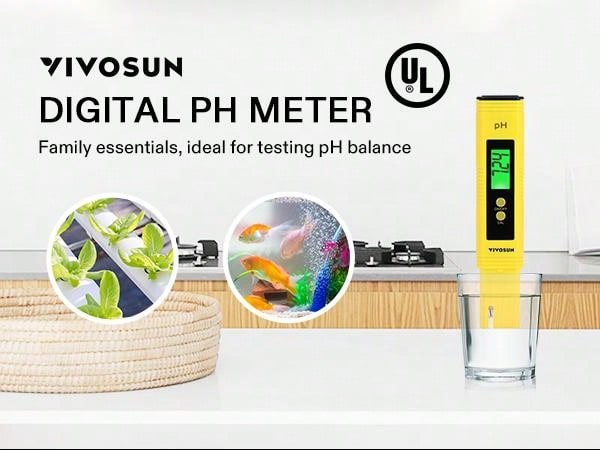
Understanding the calibration methods required for different pH meters.
Understanding the calibration methods required for different pH meters is crucial for ensuring accurate measurements in your hydroponic setup. Calibration is the process of adjusting and standardizing the pH meter to accurately read the pH levels of the nutrient solution. The most common method of calibration involves using buffer solutions with known pH values to calibrate the pH meter. The pH meter should be calibrated at regular intervals, such as before each use or at least once a month, to maintain accuracy.
Different pH meters may require different calibration processes. Some digital pH meters have automatic calibration functions, where you simply immerse the probe in a buffer solution and the meter adjusts itself accordingly. Others may require manual calibration, where you follow specific steps provided by the manufacturer to calibrate the meter. It is important to carefully read and understand the calibration instructions provided with your pH meter to ensure accurate and reliable measurements. Regular calibration is essential to maintain the precision and reliability of your pH meter, so be sure to factor in the calibration process when selecting a pH meter for your hydroponic system.
• Calibration is crucial for accurate measurements in hydroponic setups
• The process involves adjusting and standardizing the pH meter
• Buffer solutions with known pH values are commonly used for calibration
• Regular calibration is necessary to maintain accuracy, ideally before each use or at least once a month
• Different pH meters may have different calibration methods
◦ Some digital pH meters have automatic calibration functions
◦ Others require manual calibration following manufacturer instructions
• It’s important to carefully read and understand the provided calibration instructions
• Regular calibration ensures precision and reliability of the pH meter
• Consider the calibration process when selecting a pH meter for your hydroponic system
Selecting a digital pH meter with a user-friendly calibration process.
When selecting a digital pH meter for your hydroponic system, one important factor to consider is the calibration process. A user-friendly calibration process can save you time and frustration, and ensure accurate and consistent pH measurements.
Look for a pH meter that offers a simple and straightforward calibration procedure. Ideally, it should require minimal steps and provide clear instructions. Some pH meters come with calibration solutions or buffers included, which can make the calibration process even easier. Consider whether the meter allows single-point or multi-point calibration, as this may affect the accuracy of your readings. Additionally, ensure that the meter has a reliable and stable calibration feature, allowing you to recalibrate as often as needed for optimal precision. By selecting a digital pH meter with a user-friendly calibration process, you can ensure that maintaining the correct pH level in your hydroponic system is hassle-free and effective.
• Look for a pH meter that offers a simple and straightforward calibration procedure
• The meter should require minimal steps and provide clear instructions
• Consider whether the meter allows single-point or multi-point calibration
• Check if the meter comes with calibration solutions or buffers included for easier calibration process
• Ensure that the meter has a reliable and stable calibration feature
• This will allow you to recalibrate as often as needed for optimal precision
By selecting a digital pH meter with these user-friendly features, maintaining the correct pH level in your hydroponic system can be hassle-free and effective.
| pH Meter Model | Calibration Process | User-Friendliness |
|---|---|---|
| Hanna Instruments HI98103 | Calibrate by immersing the electrode in pH 7.01 buffer solution, adjust using a screwdriver, repeat with pH 4.01 buffer solution if necessary. | Moderate difficulty |
| Apera Instruments AI209 | Three-point calibration: immerse electrode in pH 7.00, 4.00, and 10.01 buffer solutions, follow on-screen prompts. | Easy |
| Oakton EcoTestr pH 2 | Single-point calibration: immerse electrode in pH 7.00 buffer solution, adjust if necessary. | Very easy |
Probe Quality and Durability:
Having a high-quality pH probe is crucial for obtaining accurate readings in your hydroponic system. The pH probe is the component of the digital pH meter that measures the acidity or alkalinity of the nutrient solution. It is important to invest in a probe that is designed specifically for hydroponic use to ensure the most precise and reliable measurements.
A high-quality pH probe is not only accurate but also durable. It should be made from materials that can withstand the harsh conditions of a hydroponic system, such as exposure to nutrient solutions and fluctuations in temperature and humidity. Additionally, a durable probe will be resistant to clogging, breakage, and wear, ensuring its longevity and continued accuracy over time.
When selecting a pH meter, pay attention to the quality and durability of the pH probe. Look for probes made from high-quality materials, such as glass or epoxy, that are resistant to corrosion and can provide accurate readings for an extended period. Remember that investing in a reliable probe will not only save you money in the long run but also contribute to the overall success of your hydroponic garden.
• A high-quality pH probe is crucial for obtaining accurate readings in a hydroponic system.
• The pH probe measures the acidity or alkalinity of the nutrient solution.
• Investing in a probe designed specifically for hydroponic use ensures precise and reliable measurements.
• A durable pH probe is made from materials that can withstand harsh conditions, such as exposure to nutrient solutions and temperature fluctuations.
• A durable probe is resistant to clogging, breakage, and wear, ensuring longevity and continued accuracy over time.
• When selecting a pH meter, pay attention to the quality and durability of the pH probe.
• Look for probes made from high-quality materials like glass or epoxy that are resistant to corrosion.
• Investing in a reliable pH probe saves money in the long run and contributes to the success of your hydroponic garden.
Exploring the importance of a high-quality pH probe for accurate readings.
A high-quality pH probe is an essential tool for accurate readings in your hydroponic garden. The pH level of your nutrient solution directly impacts nutrient absorption and plant growth, making precise measurements vital for optimal results. A reliable pH probe ensures that you can effectively monitor and adjust the pH of your hydroponic system, providing the ideal conditions for your plants to thrive.
When it comes to pH probes, quality and durability are of utmost importance. A high-quality probe is made from durable materials that can withstand the harsh environment of a hydroponic system, such as the presence of chemical solutions and varying temperatures. It should also have a fast response time and be resistant to clogging and fouling, allowing for accurate and consistent readings over time. Investing in a top-grade pH probe ensures that you can rely on its accuracy, giving you confidence in your pH measurements and allowing you to make informed adjustments to provide the best possible growing environment for your plants.
• A high-quality pH probe is essential for accurate readings in a hydroponic garden.
• The pH level of the nutrient solution directly affects nutrient absorption and plant growth.
• Precise measurements are vital for optimal results.
• A reliable pH probe allows for effective monitoring and adjustment of the hydroponic system’s pH.
• It provides ideal conditions for plants to thrive.
When it comes to pH probes, quality and durability are crucial.
• High-quality probes are made from durable materials that can withstand harsh environments, including chemical solutions and varying temperatures.
• They have a fast response time, ensuring quick and accurate readings.
• They are resistant to clogging and fouling, allowing for consistent measurements over time.
Investing in a top-grade pH probe is highly beneficial.
• It ensures accuracy in your pH measurements, giving you confidence in making informed adjustments to create the best growing environment for your plants.
Considering the durability and
When considering the durability and longevity of a pH meter, it is crucial to select a probe that can withstand the demands of your hydroponic system. The quality of the pH probe directly impacts the accuracy and reliability of your measurements, making it an essential component for successful hydroponics. Investing in a high-quality pH probe ensures that it will deliver accurate readings over an extended period, reducing the need for frequent replacements and potentially saving you money in the long run. Additionally, a durable pH probe can withstand harsh conditions, such as exposure to chemicals or immersion in nutrient solutions, ensuring its longevity and consistent performance in your hydroponic garden.
In hydroponics, where precise pH control is paramount, the durability of a pH meter becomes even more critical. Fluctuations or inconsistencies in pH readings can have a significant impact on nutrient absorption and plant growth, potentially leading to nutrient deficiencies or nutrient toxicities. By selecting a pH meter with a durable probe, you can minimize the risk of inaccurate readings that could disrupt the delicate pH balance in your hydroponic system. Moreover, a durable pH probe is more likely to withstand any accidental rough handling, such as dropping or knocking, ensuring that it remains intact and functional throughout its lifespan.
• A high-quality pH probe is essential for accurate and reliable measurements in hydroponics.
• Investing in a durable pH probe can save money by reducing the need for frequent replacements.
• A durable pH probe can withstand harsh conditions, such as exposure to chemicals or nutrient solutions.
• Fluctuations or inconsistencies in pH readings can negatively impact nutrient absorption and plant growth.
• Selecting a pH meter with a durable probe minimizes the risk of inaccurate readings that could disrupt the delicate pH balance.
• A durable pH probe is more likely to remain intact and functional even with accidental rough handling.
Why is it important to maintain a balanced pH level in a hydroponic system?
Maintaining a balanced pH level is crucial because it directly affects nutrient absorption and plant growth. If the pH is too high or too low, it can inhibit the plant’s ability to take in essential nutrients, leading to stunted growth and nutrient deficiencies.
How can I assess my hydroponic garden’s pH monitoring needs?
Assessing your pH monitoring needs depends on factors such as the size and scale of your hydroponic setup and the specific pH range required for your plants. Consider the frequency of pH measurements needed, accuracy and precision requirements, and the durability of pH probes when selecting a pH meter.
What is the significance of accuracy and precision in a digital pH meter for hydroponics?
Accuracy and precision are vital for reliable pH measurements in hydroponics. If the pH meter is not accurate, it can lead to incorrect pH readings, resulting in imbalanced nutrient solutions and poor plant health. Precision ensures consistent and repeatable results, enabling better control over nutrient delivery.
How important is the calibration process for a pH meter?
Calibration is necessary to ensure the accuracy of pH meters. Over time, pH probes can drift and lose accuracy, requiring calibration to recalibrate the meter. Different pH meters may have different calibration methods, so it is essential to understand and follow the specific calibration process for your chosen meter.
Why is the quality and durability of the pH probe important for accurate readings?
A high-quality pH probe is crucial for accurate readings because it directly interacts with the nutrient solution. A durable probe can withstand the harsh conditions of hydroponics, such as nutrient solutions, temperature fluctuations, and cleaning procedures, ensuring long-lasting and reliable pH measurements.

Ankit Garg is a seasoned writer at South El Monte Hydroponics, blending his passion for agriculture with a penchant for storytelling. With a degree in Agricultural Sciences from a prestigious institution, Ankit’s expertise lies in hydroponics, sustainable farming, and innovative cultivation techniques. His keen interest in exploring the intersection of technology and agriculture has led him to delve deep into the realm of hydroponic farming, where he thrives in uncovering the latest advancements and sharing insights through his engaging prose. Ankit’s dedication to promoting eco-friendly and efficient farming practices through his writing has earned him recognition within the agricultural community and beyond.

